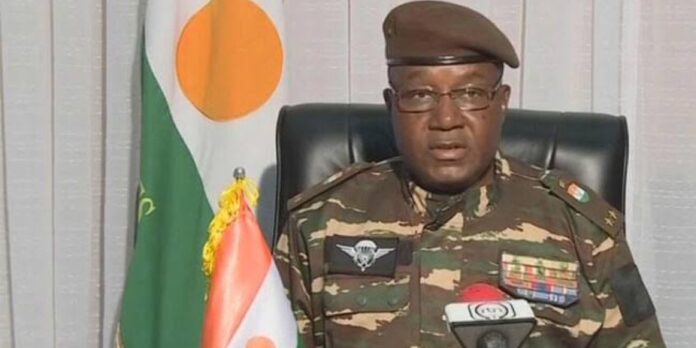In an unprecedented show of solidarity, two prominent Northern Nigerian groups have lambasted Niger Republic’s junta leader, General Abdourahamane Tchiani, for what they described as “irresponsible and baseless allegations” against Nigeria’s President, Bola Ahmed Tinubu. The groups are demanding an immediate and unequivocal apology from the military head of state, accusing him of trying to sow discord between the two nations.
“Unsubstantiated Allegations”
Tchiani had accused President Tinubu of collaborating with France to destabilize Niger—a claim the Nigerian groups assert lacks any factual basis. Speaking at a press briefing in Kaduna, representatives of the Arewa Youths Coalition for Peace and Political Development and the Northern Elders Progressive Group criticized Tchiani’s statements as “unpresidential” and potentially damaging to regional unity.
“We reject in totality the recent allegations made by General Abdourahamane Tchiani against President Bola Tinubu. These are unguarded utterances that lack decorum and are capable of overheating the polity,” said Yusuf Abubakar, the convener of the joint session of the two groups.
The groups had convened their 8th joint meeting to deliberate on the growing tension between Nigeria and Niger. A communiqué signed by Alhaji Yasir Ramadan-Kano and Mustapha Dutsin-ma further articulated their concerns.
“Solidarity with Tinubu”
The Northern groups expressed strong support for Tinubu, praising his administration’s focus on uniting Nigeria and addressing the country’s challenges, especially in the troubled northern region.
“Our stance on this saga is total support and endorsement of President Bola Tinubu,” Abubakar emphasized. “His giant strides in ensuring political unity, security, and peace restoration in the North deserve commendation.”
The groups noted that Nigeria and Niger share a long history of mutual respect and cooperation, which must not be jeopardized by what they described as “malicious rhetoric.”
“Calls for Restraint and Responsibility”
Abubakar cautioned Tchiani against actions or statements that could create disunity between the two nations, urging the junta leader to prioritize diplomacy and mutual respect.
“We must avoid fanning embers of hatred that could harm our collective survival as one people,” Abubakar warned. “The unity, peace, and development of the North and our shared border regions are sacrosanct.”
He also urged political leaders, particularly those of Northern origin, to unite in addressing the myriad challenges facing the region.
“There must be a way to bring our leaders together to prioritize development and eschew hatred, mudslinging, and mischief that threaten our collective interests as a nation,” he added.
“Commendation for Tinubu and Ribadu”
The groups commended President Tinubu’s ongoing efforts to combat insecurity in the North, particularly in the North-West, which has been plagued by banditry and violence.
“Malam Nuhu Ribadu, the National Security Adviser, has also demonstrated exemplary leadership in ensuring peace and stability across the country,” Abubakar remarked.
He specifically praised Ribadu’s “kinetic and non-kinetic approaches” that have led to improved security in previously deserted areas. However, he called for more decisive action against notorious bandit leaders like Bello Turji, whose reign of terror in Sokoto, Zamfara, and Katsina States remains a significant challenge.
“A Plea for Unity”
The groups concluded their message with an appeal for broader cooperation and unity across the Northern region. Abubakar emphasized that the political elite and traditional leaders have a responsibility to foster peace and development in the region, ensuring a cohesive approach to national progress.
Regional Tensions at Stake
This heated exchange between Nigerian civil groups and Niger’s junta leader comes amidst a backdrop of heightened tensions between the two nations following the military coup in Niger earlier this year. The Nigerian government, under Tinubu’s leadership, had initially led efforts within the Economic Community of West African States (ECOWAS) to restore democratic governance in Niger, a stance that has drawn sharp criticism from Tchiani and his supporters.
Observers have noted that the Nigerien leader’s claims against Tinubu appear to be an attempt to divert attention from internal struggles within his administration. Critics argue that Tchiani’s rhetoric could harm the historically strong ties between the two nations, which share not only a porous border but also deep cultural and economic ties.
While the groups’ demands for an apology reflect the growing frustration in Nigeria, the broader implications of the dispute remain uncertain. Will Tchiani retract his allegations and seek diplomatic resolution, or will the war of words escalate further?

